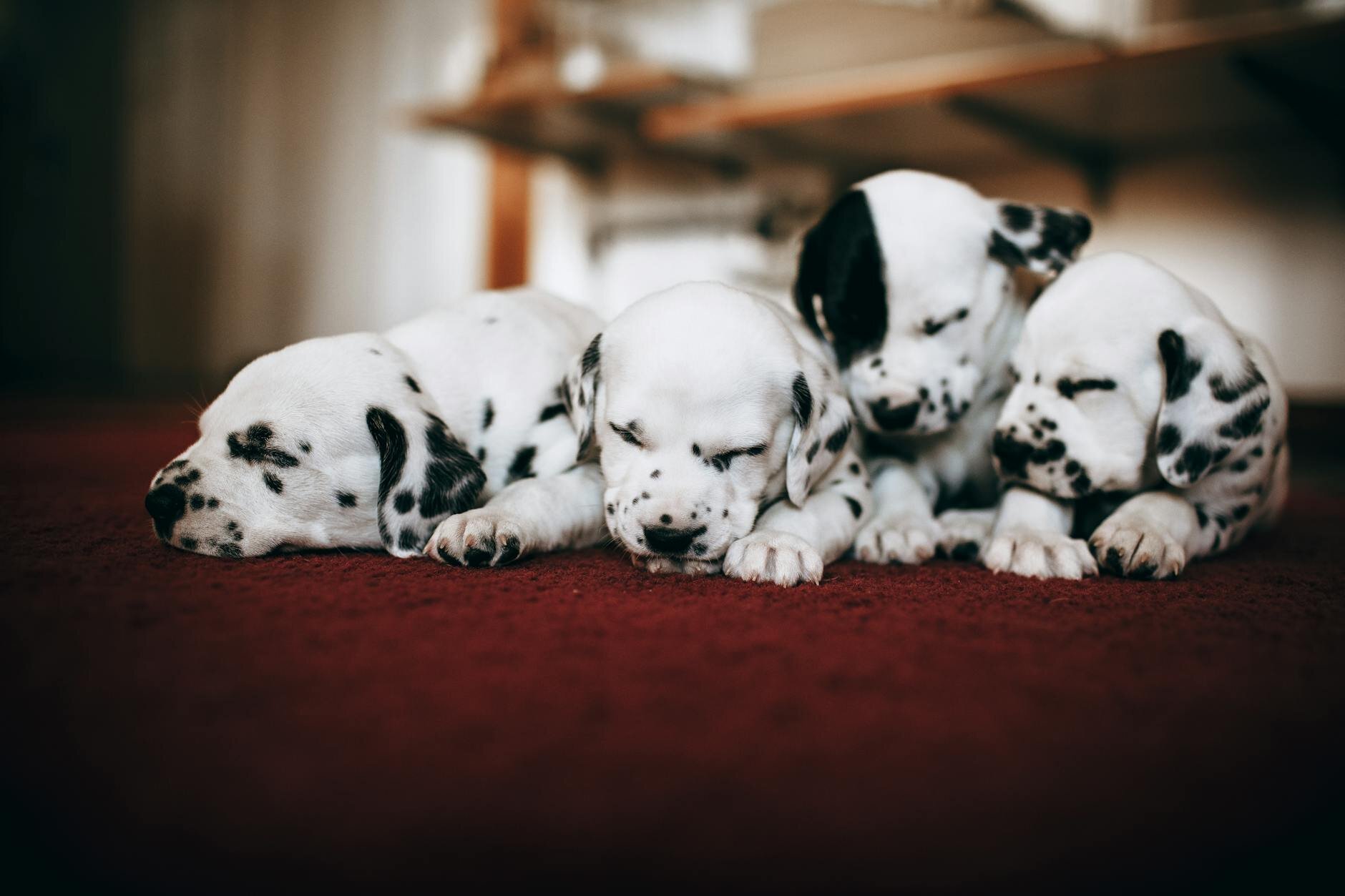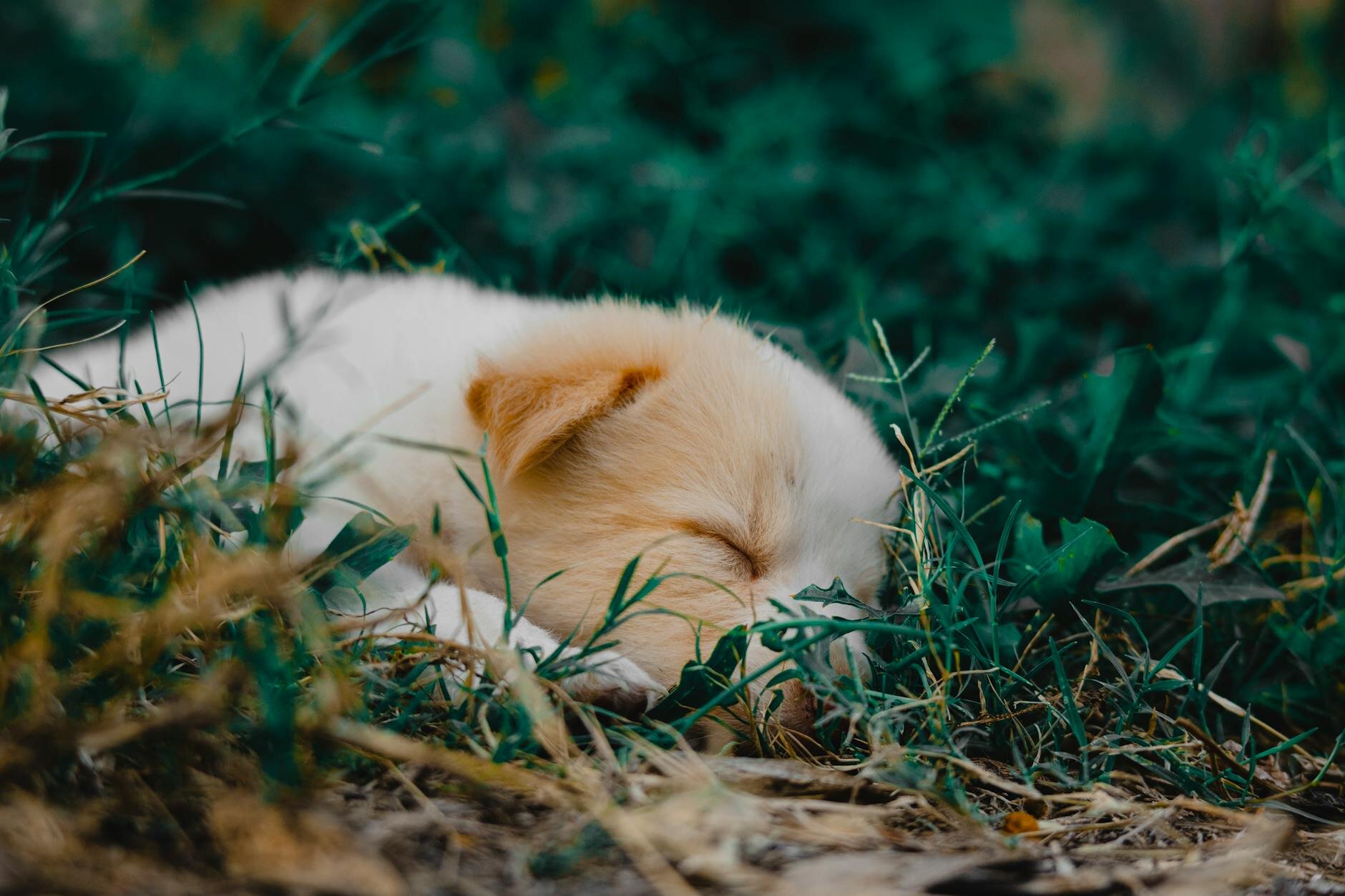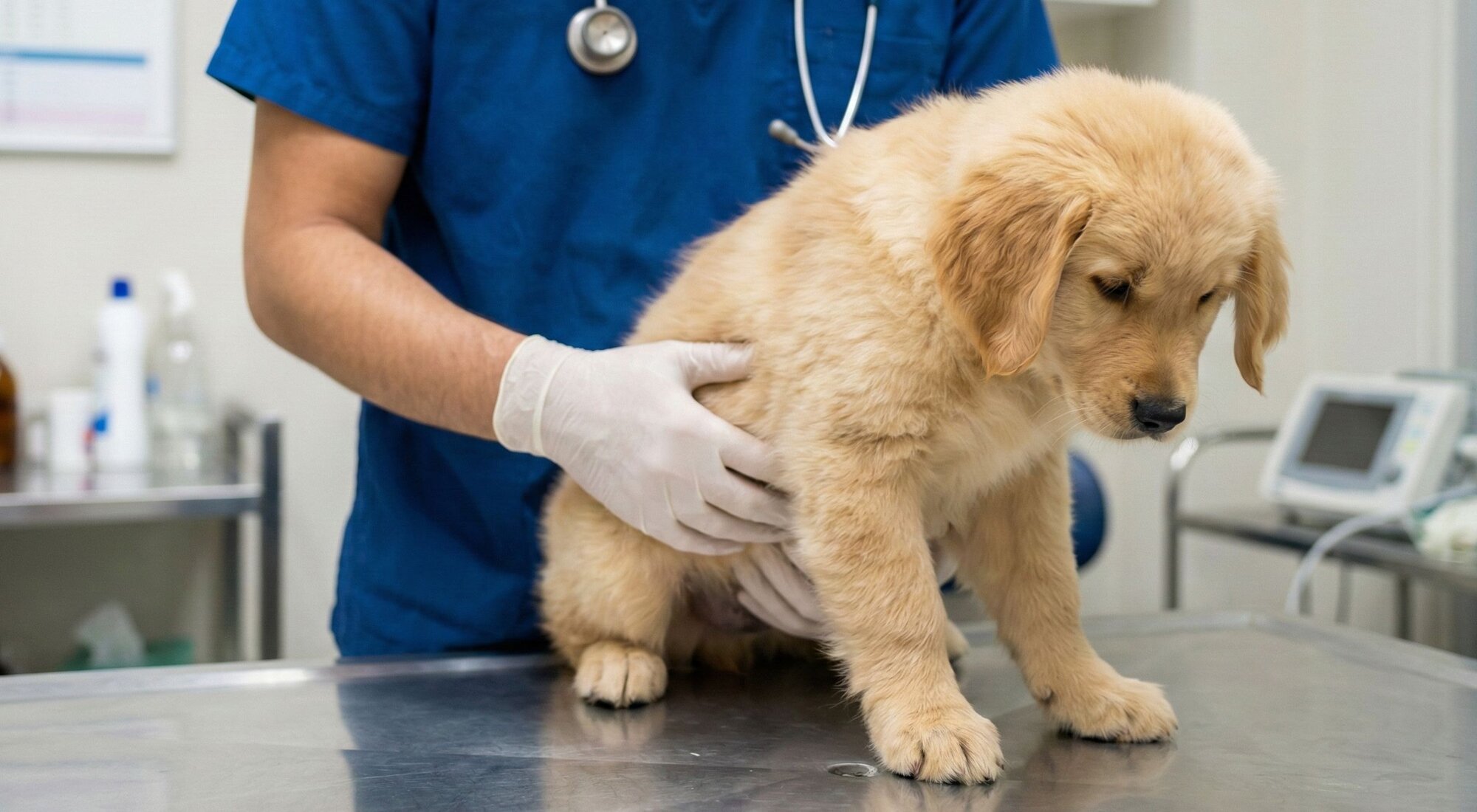Last Updated: 25/11/2025
How Much Sleep Do Puppies Need? A Vet's Guide to Snoozing
Wondering how much sleep your new puppy needs? From sleep cycles to establishing a bedtime routine, our expert vets explain it all. Learn why puppies snooze so much, how to crate train for better rest, and how to spot signs of sleep concerns.
Author: Dr Nicole du Plessis BVSc (Hons)
Reading Time: 7 minutes - short read
Bringing a new puppy home is a whirlwind of excitement, cuddles, and often, a little bit of chaos. While new pet parents might be feeling the effects of sleep deprivation, the new family addition needs a massive amount of rest to thrive. In fact, sleep is just as important for a puppy as nutrition and play.
During those long snoozes, a puppy’s body is busy conserving energy for rapid growth and developing the brain power needed to learn new tricks. Understanding these sleeping habits is key to ensuring a happy, healthy, and well-rested household.
Puppy sleep patterns by age

Newborn sleeping habits
Newborn puppies are essentially eating and sleeping machines. At this delicate stage, they cannot see, hear, or effectively regulate their own body temperature. Sleep is vital for conserving energy, allowing them to focus all their physical resources on rapid growth and development.
The growing puppy
As puppies mature, they become far more active. They begin exploring their surroundings, socialising with littermates, and meeting new people. Despite this burst of energy, a growing puppy still requires a significant amount of rest - averaging 18 to 20 hours of sleep per day.
Being a puppy is exhausting work! It is common to see a puppy play intensely or finish a meal, only to suddenly fall asleep moments later. These power naps typically last anywhere from 30 minutes to two hours.
Understanding dog sleep cycles
Much like humans, puppies experience specific sleep cycles comprising two main phases:
- REM (Rapid Eye Movement) sleep: This is the active phase where dreaming occurs. You might notice your puppy’s eyes moving rapidly under closed lids, or see their paws twitching as they chase dream bunnies.
- Non-REM sleep: This is a deeper, restorative sleep phase.
The balance between these two stages shifts throughout the night, with more REM sleep typically occurring in the early morning. Understanding these natural rhythms helps in planning your puppy's routine for play, training, and necessary rest.
Factors influencing your puppy's sleep

Several factors can influence a puppy's sleep patterns:
- Age: Puppies, like human babies, need more sleep than adult dogs. Younger puppies may sleep up to 18 to 20 hours a day, gradually decreasing as they grow.
- Breed: Different breeds have varying energy levels and sleep requirements. Larger and giant breeds will often snooze for longer than their smaller breed counterparts. Working dogs and guardian dogs may stay awake for longer periods instinctively to prioritise their work.
- Exercise: Puppies with higher activity levels tend to sleep more soundly. Regular play and exercise help burn excess energy, promoting better sleep.
- Environmental Factors: The sleep environment plays a crucial role. A quiet, comfortable, and secure space can contribute to restful sleep. Ensure your puppy has their own cosy, comfortable bed and a quiet place to retreat.
- Feeding Schedule: Meal times and feeding schedules can impact a puppy's sleep. Puppies may sleep more after meals, and establishing a regular feeding routine helps regulate their sleep-wake cycle.
How to help a puppy sleep through the night

It is important to remember that very few puppies sleep through the night immediately, and this is completely normal behaviour. Young puppies have small bladders and will require frequent toilet breaks. As a general rule, the younger the puppy, the more frequently they will need to eliminate throughout the night.
However, there are several strategies to help both you and your new family member get some much-needed rest.
Establish a routine: Set a regular bedtime and wake-up time for the puppy. Consistency is key to helping their internal body clock adjust to a schedule. A predictable routine also assists pet parents in planning daily activities around the pup's sleep times.
Limit daytime naps: Dogs are polyphasic, diurnal animals. This simply means they do the majority of their sleeping at night, with naps scattered throughout the day. If a puppy takes multiple, long naps during daylight hours, they may struggle to settle at night. Encourage shorter, more frequent naps, but remember that growing puppies still require up to 18 hours of sleep in a 24-hour period.
Use a crate: A crate provides a safe, secure sleeping space and serves as a wonderful training tool. It creates a den-like environment that aids in toilet training, as dogs naturally avoid soiling where they sleep. If crate training is chosen, ensure the puppy still has opportunities to toilet during the night. If they are uncomfortable or desperate to eliminate, they may cry or become anxious. Make the crate comfortable with lots of soft bedding, cushions and mats.
Avoid late meals: Feeding close to bedtime often leads to increased night-time bathroom breaks. Try to finish the evening meal a few hours before sleep. This provides ample time for digestion and a final toilet break before lights out.
Create a bedtime ritual: Establish a calming evening routine to signal that the day is ending. Consistency is vital here. This ritual might include:
- A short afternoon walk (if the puppy is fully vaccinated).
- A gentle play session.
- A soothing grooming session.
- A specific "bedtime" command or cue.
Utilise calming products: If your puppy is struggling to settle, consider introducing calming aids to their sleep routine. Heartbeat toys can be a game-changer; they mimic the comforting, rhythmic sound and feel of a mother’s heartbeat to provide a sense of security. Additionally, products like Adaptil release synthetic pheromones - natural chemical signals that convey a sense of safety - to help soothe and relax your new family member.
When to worry about puppy sleep

While it's normal for puppies to sleep a lot, it's essential to be aware of signs that may indicate sleep concerns:
- Excessive Sleeping: If your puppy sleeps far more than the average recommended amount, it could be a sign of an underlying health issue. It is normal for puppies to want to nap after a big meal, but if your puppy becomes lethargic straight after every meal, this can be a sign of a liver shunt.
- Restlessness: Frequent waking, pacing, or an inability to settle down during sleep could indicate discomfort or anxiety. There are anxiety aids which can be very helpful when settling in a puppy to a sleep routine.
- Loud snoring or laboured breathing: These symptoms may suggest respiratory or structural problems, such as brachycephalic upper syndrome in flat-faced breeds like French Bulldogs and British Bulldogs.
- Sudden Changes in Sleep Patterns: If your puppy's sleep patterns abruptly change, consult your vet to rule out any medical or behavioural issues.
FAQs
Navigating the early months of puppyhood can be exhausting, but establishing healthy sleep habits early on pays off in the long run. By providing a comfortable environment and sticking to a consistent routine, pet parents can ensure their puppy gets the critical rest required for development. Remember, every puppy is unique; some may snooze all day while others are little balls of energy. However, if a puppy's sleep habits seem unusual or are accompanied by other symptoms, booking a check-up with a local veterinarian is always the best step to ensure everything is on track.
References
How Many Hours Does a Dog Sleep in a Day? Pet MD
How to Get Your Puppy on a Healthy Sleeping Schedule Pet MD - https://www.petmd.com/dog/general-health/how-many-hours-does-dog-sleep-day
How Much Sleep Do Puppies Need? Chewy - https://be.chewy.com/how-much-should-puppies-sleep/
How to Make Sure Your Puppy Gets Enough Sleep American Kennel Association - https://www.akc.org/expert-advice/health/how-much-do-puppies-sleep/
How much sleep do puppies need? Vets for Pets - https://www.vets4pets.com/pet-health-advice/dog-advice/how-much-do-puppies-sleep/
Articles recommended for you
Our vet authored guide to the benefits of feeding your dog fresh food plus tips and advice for introducing it into their regular menu.
See our guide to protecting your pet from parasites from our vet team.
Thinking of getting a fish? Check out our guide for setting up a tank and home care tips!
Looking to understand horse feeds better? This comprehensive guide covers feeding recommendations for horses of all ages and disciplines.
Does your pet suffer from anxiety? Check out our Vet-guide for treatment options to help your pet.
History
Our experts continually monitor the health and wellness space and we update our articles when new information becomes available.
Wed 26 Nov 2025
Edited by Dr Gillian Hill BVSc (Hons)Dr Nicole du Plessis BVSc (Hons)
Author, BVSc (Hons)
Dr. Nicole du Plessis is one of Pet Circle's qualified veterinarians and passionate pet care enthusiasts. Dr. Nicole graduated from the University of Queensland in 2016 with a Bachelor of Veterinary Science and worked for a number of years in small animal clinics across South East Queensland before joining the Pet Circle team. Over the years, Nicole has developed special interests in preventative medicine, infectious diseases, small animal medicine and ultrasound.

